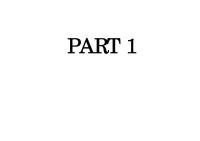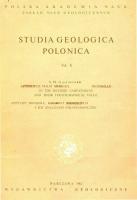Belief and Doubt in Gerard Manley Hopkins's The Windhover, Carrion Comfort and Binsey Poplars [PDF]
Popa Bianca-Elena 2 Year, Series 1, Group 1 nd Belief and doubt in Gerard Manley Hopkins’s The Windhover, Carrion Comfo
30 0 77KB
Papiere empfehlen
![Belief and Doubt in Gerard Manley Hopkins's The Windhover, Carrion Comfort and Binsey Poplars [PDF]](https://vdoc.tips/img/200x200/belief-and-doubt-in-gerard-manley-hopkinsx27s-the-windhover-carrion-comfort-and-binsey-poplars.jpg)
- Author / Uploaded
- Anonymous pUxJ8IE812
Datei wird geladen, bitte warten...
Zitiervorschau
Popa Bianca-Elena 2 Year, Series 1, Group 1 nd
Belief and doubt in Gerard Manley Hopkins’s The Windhover, Carrion Comfort and Binsey Poplars
In this essay, I want to analyze three of the poems of G. M. Hopkins in order to establish whether the prevailing feeling in these literary works is that of belief or doubt. I am going to talk about each religious sonnet announced in the title separately at first and then I would like to make a comparison between them. To begin with, I have decided to start analyzing The Windhover. The sonnet is divided into two parts and it is dedicated to “Christ our Lord”. In the first part or in the octet, the author depicts the exquisite flight of a Falcon. Hopkins gives to the bird of prey a royal superiority naming it “kingdom of daylight’s dauphin” (1-2) which I think that it places the bird closer to God (because if we are to think of the Great Chain of Being beneath God and angels there is the royalty and then the commoners). Thus, the author admires the beauties that God left on earth watching in amazement the perfect, flawless flight of the Falcon. In the sestet, he is addressing Christ directly when he says “O my chevalier” (11) because chevalier (member of certain orders of knighthood dictionary) refers to a defender, to the saver of humanity that is Jesus Christ. He starts the sestet by enumerating a bunch of qualities of the bird which buckles or collapses in order “to reveal a glimpse of spiritual beauty” (Watt, 51) which is however not as magnificent and powerful as that of Christ. “No wonder” (12), then, that we can see His beauty in ordinary things, in inanimate things such as the plough field and the embers (coal). With respect to the coal, the author describes it metaphorically pointing out that even in things that seem dead (“blue-bleak embers” – 13) is still life, meaning that we have to look close to discover the beauty of Christ. I think that this poem illustrates perfectly the faith that Hopkins has in God. He never doubts that there is Christ’s beauty in everything and that everything which is perfect like the Falcon’s flight is made by our Lord. (I do not think that there is something in the poem which can make us doubt about Christ’s existence, beauty or power. On the contrary, the poet emphasizes the Christ’s incomparable beauty and power which can make even the plough field shine).
Popa Bianca-Elena 2 Year, Series 1, Group 1 nd
The second poem I am focusing on is Carrion Comfort. This poem comes in a big contrast with the first one, already discussed. If The Windhover represents an obvious instance of Hopkins’s faith in God, here in Carrion Comfort he begins to doubt whether to gratify God for his current condition or to blame Him. The poem starts with the optimistic thought of the author that he will not indulge in his present state which is one of pain and misery, this being suggested also by the title, carrion meaning dead and decaying flesh (dictionary), but he will rather try to recover. The forth line illustrates his determination to live, to fight. He does “not choose not to be” (4). But even so, he wonders why God is so rude with him. He addresses him “O thou terrible” (5) emphasizing the real struggle, the ordeal that he is getting through. God punishes his already weak body and why? For what all that struggle, all that punishment? The poet comes with an answer in the sestet which reveals the fact that even though in the beginning he doubts that God does anything good to him, now he believes that all that punishment was for his own good. Its purpose was to make his soul pure, “sheer and clear” (9). He even asserts that he got the touch of God by saying that he “kissed the rod” (10), meaning that he touched one end of the rod (which is a stick used for punishing – dictionary), the other end being held by God. In this way it was created a kind of connection or union between the poet and God which enabled him to feel God and to recover his strength and joy. But now as he recovered, as he is healthy again he does not know who he should cheer. Either God who punished him in order to strengthen and to purify him or even himself for not giving up, for perpetually struggling to survive. After reading what R. J. C. Watt said about this which is: “he even cheers the 'heaven-handling' torments which God subjected him to, and cheers himself for his part in that struggle: since it was God within him”, I tend to think that he actually cheers God because when he fought God it was the rod, the object of punishing which enabled him to get a touch of God and therefore to recover his strength. Thus, it was through the punishment of God that he managed to regain his health. To conclude, the poet realizes that it was God who helped him get over that tough period which is now over (“that year of now done darkness” – 14), this reinforcing his faith in God. The third poem that I am going to discuss in this essay is Binsey Poplars. In this poem, Hopkins shows his faith in God making use of nature. In the first stanza, the poet mourns the falling of trees. He remembers how they provided shadow and suppressed the sunlight and now there is not one left. He addresses the trees by calling them “My aspens dear” (1), pointing out his great grief. In the second stanza, he makes human beings/ men responsible for the destruction
Popa Bianca-Elena 2 Year, Series 1, Group 1 nd
of nature. He says that we do not know what harm we cause when we cut down trees. And even when we try to repair, to fix what we damaged we hurt nature even more, “we end her” (17). The poet refers to the world as being so tender and fragile that even the smallest “prick” would make it suffer and he compares it with our “eyeball which can be made useless for ever by a single tiny jab” (R. J. C. Watt, 58). He regrets also the fact that future generations cannot enjoy the beauty of nature that is now lost forever (“After-comers cannot guess the beauty been” – 19). He misses “the sweet especial scene” (22) which is “the rural scene” (23). If we are to think of the poem The Windhover and to compare it with this one, we can say that here Hopkins expresses his faith in God again, using this time the poplar trees. He is deeply devastated by the destruction of nature. He blames people for destroying God’s beauty. In this way we depart ourselves from God. I think that he makes an analogy between men, nature and God, in the sense that he wants to say that our actions of destruction against nature are in fact actions taken against God. We are not aware that we destroy God’s beauty. I believe that he draws a parallel between our relation with nature and that with God. If the first one is affected in any way so is the second. I personally believe that he wants to alert us that the more we neglect nature and destroy it (going forward modernization industrialization), the more we worsen/ deteriorate our relation with God. In conclusion, all these three poems/ religious sonnets show Hopkins’s faith in God. His faith is so great, he is so dedicated to God’s love that he even makes us aware of the fact that God’s beauty exists in everything, even in the most ordinary things and that we should preserve what God left on earth and especially our relation with Him, our faith in Him. He shows us that even in his short moments of doubts he still found the power and grace of God that made him recover his spirits.









